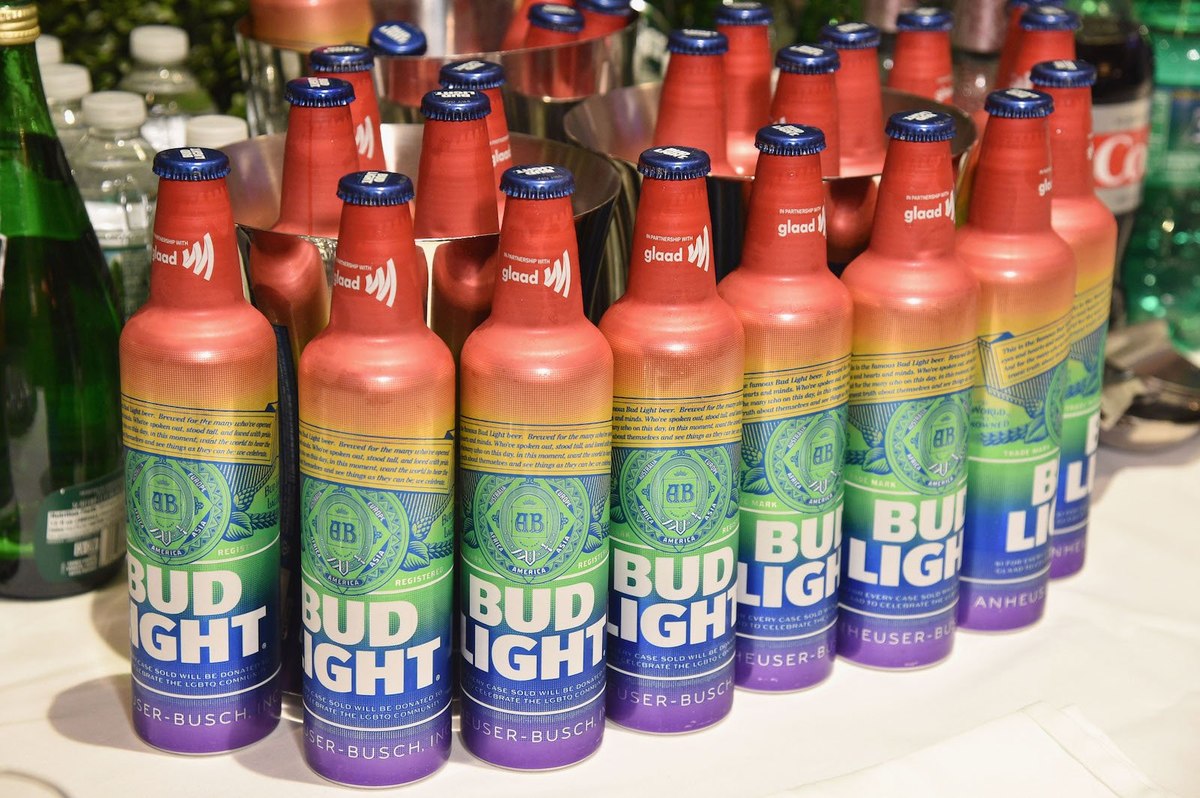
Evaluating Bud Light’s Dylan Mulvaney sponsorship
On April 1, trans TikTok influencer Dylan Mulvaney posted a video of herself drinking from custom Bud Light cans with her face printed on them. The cans were a gift from sponsor Anheuser-Busch to celebrate Mulvaney’s 365 days of girlhood.
On the face of it, the partnership was a fiasco. It caused viral explosion of conservative ire and widespread calls to boycott the Anheuser-Busch brand. Stock prices have dropped, leading the company to lose $5b of value. Musician Kid Rock expressed his frustration by blowing up a case of Bud Light with an automatic rifle. According to Republican presidential hopeful, Vivek Ramaswamy, Anheuser-Busch’s partnership with Mulvaney is nothing less than “corporate suicide.” After nearly a month of controversy, two marketing executives responsible for the sponsorship were placed on leave.
Has this controversy hurt the brand? Among conservatives, the answer appears to be yes. Impression score, tracked by YouGov BrandIndex, measures overall positive/negative feelings about a brand. Among registered Republicans, Impression plummeted from 12.2 to -39.5 over the month of April, a vertiginous drop of 51.7 points. This has helped to drive a drop in Impression among all Americans over 21 from 6.2 to -8.5.
Despite these grim numbers, the marketing campaign shows at least some signs of success with target demographics. In an interview with podcast “Make Yourself At Home”, Bud Light marketing VP Alissa Heinerscheid explained her strategy.
As she sees it, the Bud Light brand has been in decline for a long time and its only hope for a brighter future is to attract more young drinkers and, specifically, more young female drinkers. The “inclusive” marketing strategy, which involved the partnership with Mulvaney, is aimed at changing the “fratty, kind of out-of-touch humor” that has characterized Bud Light.
Among Heinerscheid’s target demographics, Bud Light’s “corporate suicide” might be framed as a targeted marketing victory. Impression scores have improved among Americans 21-29 years of age from 6.3 to 10.1. Among young women, the change was even greater. Before the Mulvaney controversy, women under 30 had decidedly negative feelings towards the “fratty” beer brand, with an Impression score of -3.9 at the beginning of April. This rose to a high of 6.2 before falling again to 2.7 by the end of month, for a gain of 5.6 points.
Are these limited gains among young consumers enough to offset alienating Republican drinkers? The higher-ups at Bud Light apparently do not think so, as both Heinerscheid and her boss have been placed on leave.
Looking at metrics further down the marketing funnel may help to explain why. Purchase Intent is a measure of how many consumers would buy a brand compared to its competitors. It’s based on the question “Of the brands considered, which one are you most likely to purchase?”
While the effects of online controversies are often transient, the preliminary results are not promising for Anheuser-Busch. Unsurprisingly, Purchase Intent among Republicans dropped over the course of the month from 6.2% to 2.4%. This is significant but not nearly as dramatic as the drop in Impression. The overall score for all consumers over 21 fell only modestly from 5.3% to 4.6%, which is well within normal monthly variation for this metric.
The more interesting data comes from the young consumers who were the target of the influencer campaign. While YouGov data indicates that their Impression of Bud Light improved, they also have become less inclined to buy and drink the beer. Purchase intent among 21-29-year-olds fell from 5.1% to 2.5%. Among women of that age, the drop was even sharper, from 6.1% to 0.7%.
The commercial effect of marketing campaigns and online controversy is notoriously difficult to measure. It’s entirely possible that, over time, the strategy behind the controversial Mulvaney sponsorship will be vindicated. In the meantime, the data shows with certainty that wading into political controversy is dangerous for brands and can have unexpected results.
Explore our living data – for free
To receive monthly insights on advertising register here.
To read YouGov’s latest intelligence for agencies explore here.
Make smarter business decisions with better intelligence. Understand exactly what your audience is thinking by leveraging our panel of 20 million+ members. Speak with us today.
Methodology: YouGov BrandIndex collects data on thousands of brands every day. A brand’s Ad Awareness score is based on the question: “Which of the following consumer brands have you seen an advertisement for in the past two weeks?” Data from surveys of adults aged 21 years and above residing in the United States from April 1 and April 30, 2023. Scores are based on a four-week moving average. Learn more about BrandIndex.